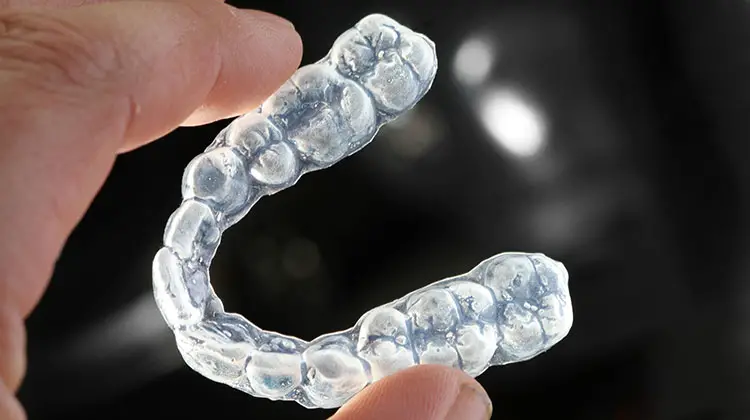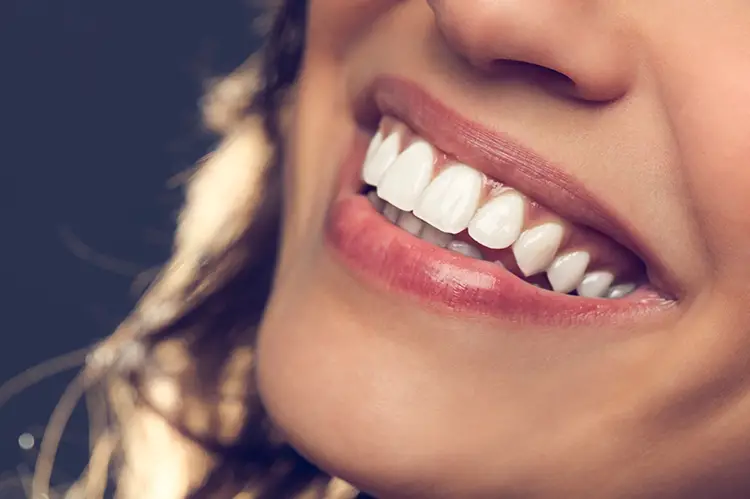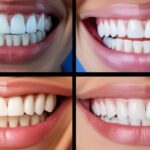Jaw Alignment Issues Are Likely Much More Common
The Boston Children’s Hospital reports that severe malocclusion affects a sizable percentage of school-aged children, roughly 10 to 15 percent. For people who grew up with jaw alignment problems, many had to deal with well-intentioned but ultimately harmful advice from parents and teachers (e.g. “Don’t hold your chin like that!”).
At best, that advice just puts a Band-Aid on a much more fundamental issue. At worst, that advice becomes persistent nagging that only reinforces the self-esteem issues that people with overbites, underbites or weak chins struggle with.
And as we’re about to find out, this can come with significant backlash.
The Potential for Childhood Trauma
Childhood and adolescence is a time when many people suffer from low self-esteem. The DoSomething team even states that 20 percent of teens will experience depression that’s associated with low self-esteem before adulthood.
But growing up with an ongoing, visible jaw issue can be incredibly difficult. Often, it can result in extreme self-consciousness and ridicule from peers. As a result, it’s common for parents to want to intervene in an attempt to remedy the issue. But this can come at a cost.
Anyone who grew up in a home where a parent constantly chided them with a “Stand up straight!” knows how detrimental that behavior can be. Even though the parents’ intentions may be good, their methods are often ill-informed and ultimately unhelpful. Further, the performative aspect of growing up like that can be incredibly exhausting for a child. That environment would only reinforce existing self-consciousness.
And of course, an irregular bite can be the catalyst for bullying. UK reporter Beki Elmer writes about one woman who was the victim of incessant bullying because of the protruding jaw she had growing up. Her severe overbite caused a speech impediment, difficulty chewing and even her jaw to dislocate whenever she yawned.
This resulted in a tremendous amount of childhood trauma — to the point that the woman eventually had major jaw surgery performed. That surgery involving four metal plates and 25 screws implanted in her face. The problem was ultimately fixed but came at a significant cost, and there still could be lingering psychological effects of the bullying.
Another story involves a young woman named Aija Mayrock, who writes in Teen Vogue about her experience with incessant, progressively worse bullying. “I started getting bullied in the third grade because I had a lisp,” she writes. “But the bullying didn’t stop there. It only escalated. Soon, I began to be bullied for my appearance, my weight, my personality, and literally every single thing that made me me.”
Susan Salter explains in the Arizona Republic that one of the causes of a lisp can be an overbite, which is a double-whammy that affects many children. In Mayrock’s case, that opened the door to even more abuse.
Naturally, many parents of children with jaw alignment issues want to help. But without adequate knowledge of what truly causes the issue, many end up trying misguided DIY corrective measures.
Below are just a couple of examples.
‘Don’t Hold Your Chin Like That’
The Healthline team writes that a weak chin—medically known as retrogenia—is a condition that occurs when your chin projects slightly backward toward your neck.
The Health Rave team highlights some specific characteristics of a weak chin, including:
- Not having a clear chin and neck contour
- Having a short, narrow and very small chin
- Having a protruded upper lip
They add that some people find absolutely nothing wrong with the aesthetic appearance of a weak chin. However, others find it unattractive and seek ways to correct it. One of the more common myths is that standing up straight and avoiding holding your chin downward can improve it. But in reality, this isn’t known to have any tangible impact.
Another myth is that doing certain “jaw exercises” will help. But Paul S. Nassif, MD points out in RealSelf that there are no exercises that can help improve a receding chin. While certain exercises have been known to make improvements to a double chin — Kay Tang discusses some common ones in Livestrong — they simply won’t have any impact when it comes to a weak chin.
Healthline explains that there are countless exercises that promise to “fix” a receding chin — like stretching your neck up and down to strengthen the chin muscles and tightening any loose skin. But since your chin’s position is determined by bone and soft tissues, not muscles, this won’t actually fix the issue.
Using a Cheap Mouthguard for Bruxism
Lara James, RDH has an excellent guide to bruxism, or “the involuntary gnashing, grinding or clenching of teeth, whether the individual is awake or asleep; often associated with fatigue, anxiety, emotional stress, or fear and frequently triggered by occlusal irregularities.” It’s a condition that affects about 1 in 10 adults.
And as Sy Kraft points out in Medical News Today, there may be a correlation between bruxism and an abnormal bite, meaning that the teeth don’t meet properly when the jaw closes. Kraft adds that having missing or crooked teeth can prompt the teeth to grind.
Over time, bruxism can wreak havoc on your jaw and lead to a host of other symptoms. The Cerezen team highlights some of those symptoms, which include:
- Stiffening of the jaw muscles
- Locked jaw
- Enlarged jaw muscles
- Pain in the face
- Ear ringing
Naturally, sufferers will seek treatment to alleviate those symptoms. One of the more classic treatment options is using a mouthguard at night.
Dr. Mark Burhenne talks about this in Ask the Dentist, saying that this is an old-fashioned method that involves covering the teeth to protect them from the strong vertical forces caused by grinding. The goal is to prevent the teeth from being worn down, cracking and breaking — all issues that can occur over time.
But Dr. Burhenne says that the problem with a mouthguard is that it fails to treat the root cause of bruxism. According to new research, bruxism is often associated with sleep apnea, and the brain stimulates the grinding response whenever you stop breathing at night. He adds that the grinding motion pushes the jaw forward, which reopens the airway and allows you to breathe again.
The National Sleep Foundation concurs, saying that there’s a strong likelihood of a correlation between sleep apnea and sleep bruxism and that treating sleep apnea can help alleviate sleep bruxism.
Dr. Burhenne finally adds that a mouthguard will protect your teeth but won’t do anything for your tense muscles or prevent damage to your jaw joint. And in some cases, it could actually interfere with the vital response needed to prevent you from suffocating. That’s why he never prescribes a mouthguard for grinding.

Reinforcing Self-Esteem Issues
It’s easy to see why frustrated families go for DIY remedies to jaw alignment problems. Unfortunately, these are often based on myths and won’t actually solve the problem.
And in many cases, they end up doing more harm than good.
Not only do they have zero impact on an irregular bite, but they add to the emotional trauma. Therefore, it’s important for those suffering from an irregular bite as well as the parents of children suffering from an irregular bite to separate fact from fiction.
Bite Correction Treatment
Fortunately, issues like overbites, underbites and crossbites can often be eliminated through bite correction treatment. This is a non-surgical and non-invasive solution that can improve the shape of a person’s face and overall facial profile.
It works on individuals of all ages. Patients as young as 17 have had this treatment successfully completed with great results. And this is important, as the Dental.net team states that overbites account for roughly 70 percent of all dental disorders in children.
While other treatments, such as braces, may be a better fit in some cases, bite correction treatment can be efficient and fast for certain patients. In fact, patients have had malocclusions corrected in as little as two weeks with this procedure.
Address the Problem instead of Perpetuating Common-Sense Cures
A good chunk of the population struggles with an irregular bite growing up. And this issue can rear its ugly head in several different ways. Besides the physical problems like jaw pain and difficulty chewing, it can lead to emotional trauma, as well.
Teasing and bullying because of the aesthetic appearance of malocclusion or the associated speech impediment can be very painful for children. And unfortunately, many “common sense” cures only compound the situation.
There are effective forms of treatment, however, and bite correction is certainly one worth exploring.
Images by: Joseph Gonzalez, Remy Loz, Caroline Hernandez










